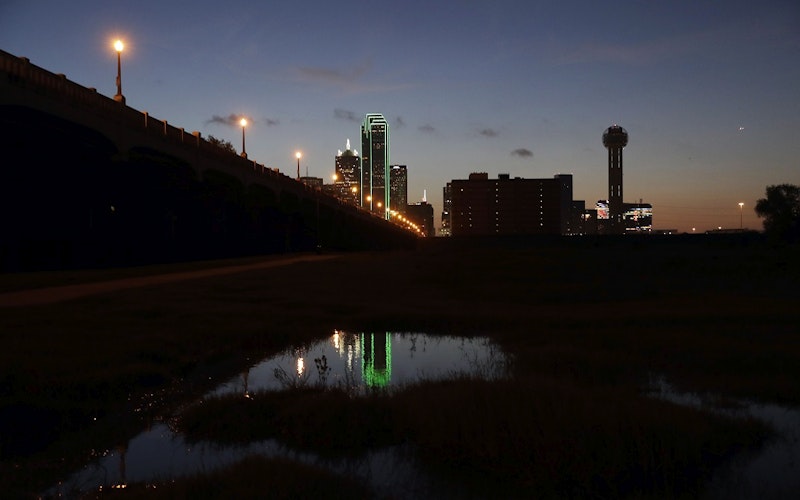
Culture At Large
Why I marched in Dallas
Last week, for the first time, I ran for my life.
I was marching in a Black Lives Matter vigil and protest in Dallas, Texas, organized by the Next Generation Action Network. The protest was designed to call attention to the systemic racism that has led some police officers across the United States to brutalize people of color and escape conviction. I was motivated to join this, my first protest, not out of hate for police officers, but out of love for my brothers and sisters of color, who for too long have not been safe in their own streets, neighborhoods and cities. Until the shooting started, our protest was peaceful, friendly and — dare I say — fun. It was a diverse group of people linking arms, literally, to march for truth and justice. It was beautiful. I found myself thinking, I wish church was more like this
And then the hate-fueled murder of five police officers by Micah Johnson ended our love-fueled protest. As I was running away from the gunshots, surrounded by screams and calls for loved ones, no fewer than five Dallas police officers ran past me toward the danger. Everything in my body was screaming to get away as fast as I could, but these men and women overcame those impulses so they could stand between me and the danger. I am overwhelmed by gratitude for their bravery. And I am in deep lament for the loss of five such brave souls.
But I cannot forget the reason I was there. Too often, our society’s systems have been set up to elevate white people (like me) over everyone else. It happens in schools, in healthcare, in the marketplace — and in the criminal justice system. For far too long, white people as a group — including many white Christians — have been far too comfortable with the presence of this evil in the world.
Too often white Christians act like the priest and the Levite, who both saw a man suffering from injustice but kept walking.
Rev. Dr. Michael Waters spoke to this point during the protest with tremendous strength and grace, calling for love in the face of hate and unity in the face of division. But he also issued another call — to white Christians. His words illustrated how too often white Christians do not even acknowledge the presence of racism, much less work alongside their brothers and sisters of color to put an end to it.
Waters’ call echoed that of Christ in the parable of the Good Samaritan. The Samaritan, despite the existing racial tension, did not walk past the robbery victim, who was likely Jewish. Nor did he ask the beaten man to prove that he was bleeding. Nor did he attempt to tell him that he should pipe down, because everyone’s health matters. No. Instead, he heard the cry of a man in the midst of injustice and stopped everything to respond. This, Jesus makes clear, is behavior befitting the Kingdom of Heaven. But too often, white American Christians act instead like the priest and the Levite, who both saw a man suffering from injustice but kept walking.
And so I am called to keep speaking and working and marching against the evil of systemic racism on the path the Lord has made for me. This means, in my particular situation, teaching high school English and helping to equip and encourage young people of color in Dallas and Fort Worth to raise their voices against the oppression they face. I am privileged to do this work with training and support from a diverse community with a common vision: that our students will apply all their ingenuity, power and skill against the forces of evil, and that they will help create a more just world for themselves and their children.
Even with last week’s gunshots ringing in my ears, I will continue to march. I will do it again and again. Because black lives matter.
Topics: Culture At Large, Theology & The Church, Faith, News & Politics, Justice, North America